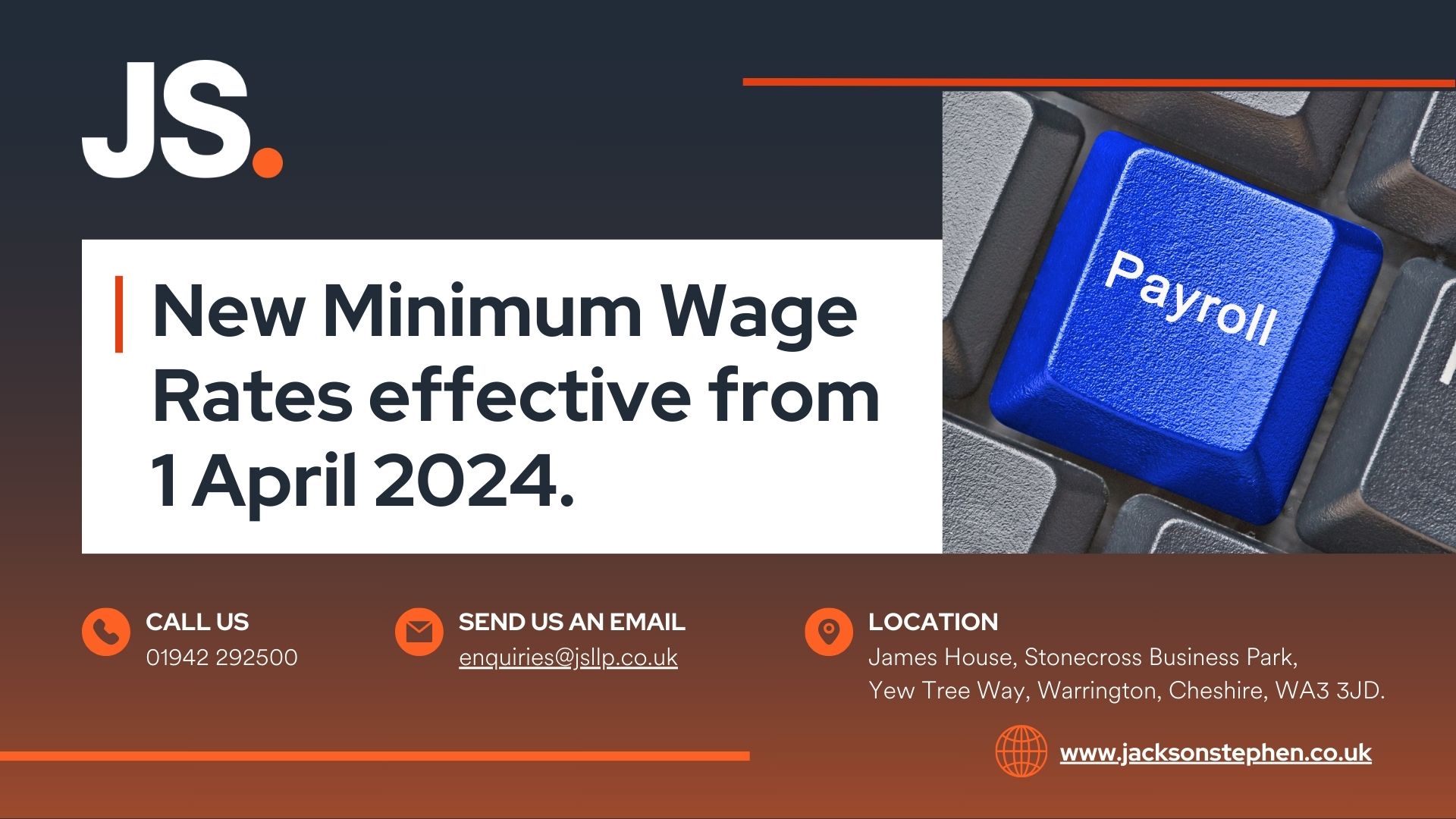
Budget 2021 Headline Announcements
03 Mar, 202110The Chancellor, Rishi Sunak, has today set out the Government's tax and spending plans ...

The Chancellor, Rishi Sunak, has today set out the Government's tax and spending plans to deal with the record level of the national debt, whilst also supporting businesses and the millions still out of work or on furlough. He has set out his plans to cover 4 key areas:
- Support for jobs and workers
- Business support measures
- Taxes
- His vision for the post-Covid and post-Brexit landscape
Headline Announcements
Business
Corporation Tax Rate
The Chancellor has announced that the rate of Corporation tax will increase for businesses with profits above £50,000. This will come into effect from April 2023, which is expected to be after the point when the OBR expects the economy to return to pre-pandemic levels. The rate will apply as follows:
Profits |
Rate |
Under £50,000 |
19% |
Between £50,001 - £250,000 |
Tapered rate |
Above £250,000 |
25% |
The Chancellor advises only 10% of UK companies will pay corporation tax at the full rate and the rate will remain the lowest in the G7.
Investment
To encourage investment now a ‘Super Deduction’ will be available from April 2021 for investment by companies. This will be available for 2 years.
The Super Deduction allows a 130% deduction for investment in plant and machinery. This will cut companies tax liabilities by 25p for every £1 they invest
in new equipment.
The Super Deduction is expected to be worth £25bn to UK companies.
In addition, investing companies will also benefit from a 50% first-year allowance for qualifying special rate (including long life) assets.
Corporation Tax Losses
The Chancellor has announced an extension to the loss carry-back provisions which is intended to help companies who have suffered from the impact of Covid-19.
The loss carry-back rule will be extended such that losses may be carried back three years (extended from the previous one-year period) and will apply
in 2020-21 and 2021-22 with the following restrictions:
- Companies that are not members of a corporate group will be able to obtain relief for up to £2 million of losses each year.
- Companies that are members of a corporate group will be able to obtain relief for up to £200,000 of losses each year without any group limitations.
- Companies that are members of a corporate group will be able to obtain relief for up to £2 million of losses each year but subject to a £2 million cap across the group as a whole.
R&D Consultation
The Government aims to raise UK investment in R&D to 2.4% of GDP by 2027. A new consultation, running to 2 June 2021, has been launched looking at a wide range of areas including; the definition of R&D, whether the RDEC and SME schemes should be combined, whether the scheme should provide more support for e.g. green technologies and how to address the geographic imbalance of where R&D is undertaken.
Concerns over the quality of R&D claims and the level of additional investment arising from the tax benefits have prompted the review of; whether activities that indirectly support R&D should be included, whether claims should be made outside of the corporation tax return, the level of information that should be submitted with a claim and how to increase the accountability of the claimant company and tax agent.
R&D Changes
From 1 April 2021, the amount of the SME payable R&D tax credit that a business can receive in any one year will be capped at £20,000 plus three times
the company’s total PAYE and NICs liability. Accounting periods that straddle this date must be treated as two separate accounting periods with the
latter period impacted by the rules.
Companies are exempt from the cap if they meet two conditions, firstly that the company’s employees are creating, preparing to create or actively managing intellectual property and secondly, that expenditure on work subcontracted to a related party plus expenditure on externally provided workers provided by a related party is less than 15 percent of the qualifying R&D expenditure.
VAT
The Chancellor has confirmed today that there will be no increases to the rate of VAT, however, whilst this is good news, the VAT registration threshold has also been frozen at its current rate of £85,000 until 31 March 2024.
The deregistration threshold will also remain at its current rate of £83,000 until 31 March 2024.
5% Reduced VAT Rate for Hospitality and Tourism
The Chancellor’s Budget did not disappoint those businesses in the hospitality and tourism sectors by announcing the reduced 5% rate of VAT will continue to apply until 30 September 2021.
To recap, the 5% VAT rate for hospitality, hotels and holiday accommodation and admissions to attractions was introduced on 15 July 2020 temporarily to help those businesses to recover following the UK’s first lockdown and due to the enforced social distancing measures.
From 1 October 2021, the VAT rate in these sectors will increase to 12.5% until finally being increased back to the standard rate of 20% from 1 April 2022.
Making Tax Digital
Making Tax Digital will be extended from 1 April 2022 to include VAT Registered businesses with turnover under the VAT threshold.
Affected businesses will need to ensure that from this date their accounting records are kept digitally and use third-party software to submit their VAT returns.
Personal
Income Tax
The personal allowance and higher rate thresholds will increase as planned on 6 April 2021 to £12,570 and £50,270 respectively. They will then remain frozen
at this level until April 2026. This means that for the next five years an individual’s take-home pay will be no less than it is now.
National Insurance Contributions
As previously announced 2021/22 National Insurance Contribution (NIC) thresholds will rise bringing the NICs primary threshold/lower profits limit to £9,568
and the upper earnings limit (UEL)/upper profits limit (UPL) to £50,270, in line with the income tax higher rate threshold. The UEL/UPL will then remain
at £50,270 until April 2026. All other NIC thresholds will be considered and set at future fiscal events.
National Living Wage
The National Living Wage will increase to £8.91 per hour from 1 April 2021 for those aged 23 and over. (The National Minimum Wage applies to those of school leaving age and below 23).
- Age 21-22 £8.36
- Age 18-20 £6.56
- Under 18 £4.62
- Apprentice £4.30
Savings
The band of savings income that is subject to the 0% starting tax rate will remain at its current level of £5,000 for 2021/22.
The adult ISA and Junior ISA /Child Trust Fund annual subscription limits for 2021/22 will remain unchanged at £20,000 and £9,000 respectively.
Dividends
No changes were mentioned. The tax-free dividend allowance remains at £2,000.
Capital Gains Tax
The chancellor has announced that the Capital Gains Tax Annual Exempt Amount (AEA) (the value of gains that a taxpayer can realise before paying Capital
Gains Tax) will be maintained at the present level until April 2026. Therefore, for individuals, personal representatives and some types of trusts
the current AEA of £12,300 will remain unchanged as will the lower rate of £6,150 which applies for most trusts.
Unlike the rates and threshold freezes announced for Income Tax, the chancellor made no such promises for Capital Gains Tax and so it remains to be seen
what the government's intentions are in respect to Capital Gains Tax going forward. We expect to have more information in regards to any potential changes
on the 23 March 2021 (dubbed ‘Tax Day’), when the government will release a range of consultations, which we expect will include changes to Capital
Gains Tax.
Inheritance Tax
The Government have announced in the Budget that the inheritance tax (IHT) nil-rate bands will remain at existing levels until April 2026 instead of increasing
to allow for inflation in line with the Consumer Prices Index (CPI).
The nil-rate band (NRB) will continue to be set at £325,000, the residence nil-rate band (RNRB) at £175,000, and the RNRB taper threshold at £2 million.
Qualifying estates can therefore continue to pass on up to £500,000 on death without an IHT liability or where those combined bands are not used on the
first death the qualifying estate of a surviving spouse or civil partner can continue to pass on up to £1 million.
This measure is expected to raise £985m for the Exchequer by 5 April 2026.
Pensions
The Government have announced that the Pensions Lifetime Allowance will be maintained at its current level of £1,073,100 until April 2026.
There were no changes announced in relation to the annual allowance or threshold income limits for the upcoming tax year.
Government Support
Supporting jobs
Coronavirus Job Retention Scheme (CJRS) – To support businesses and employees across the UK through the next stage of the pandemic, the government is extending the CJRS for a further five months from May until the end of September 2021. Employees will continue to receive 80% of their current salary for hours not worked. There will be no employer contributions beyond National Insurance contributions (NICs) and pensions required in April, May and June. From July, the government will introduce an employer contribution towards the cost of unworked hours of 10% in July, 20% in August and 20% in September, as the economy reopens.
Self-Employment Income Support Scheme (SEISS) fourth grant – To support the self-employed across the UK through the next stage of the pandemic, the government has confirmed that the fourth SEISS grant will be worth 80% of three months average trading profits, paid out in a single instalment and capped at £7,500 in total. The grant will cover the period February to April, and can be claimed from late April. Self-employed individuals must have filed a 2019/20 Self-Assessment tax return to be eligible for the fourth grant. This means that over 600,000 individuals may be newly eligible for SEISS, including many new to self-employment in 2019/20. All other eligibility criteria will remain the same as the third grant.
SEISS fifth grant – The government announces that there will be a fifth and final SEISS grant covering May to September. The value of the grant will be determined by a turnover test, to ensure that support is targeted at those who need it the most as the economy reopens. People whose turnover has fallen by 30% or more will continue to receive the full grant worth 80% of three months average trading profits, capped at £7,500. People whose turnover has fallen by less than 30% will receive a 30% grant, capped at £2,850. The final grant can be claimed from late July. Further details will be published in due course.
To be eligible for these grants, self-employed individuals must have filed a 2019/20 Self-Assessment Tax Return by midnight on 2 March 2021.
Apprenticeships
High-quality traineeships for young people – The government will provide an additional £126 million in England for high-quality work placements and training for 16-24-year-olds in the 2021/22 academic year. Employers who provide trainees with work experience will continue to be funded at a rate of £1,000 per trainee.
Payments for employers who hire new apprentices – The government will extend and increase the payments made to employers in England who hire new apprentices. Employers who hire a new apprentice between 1 April 2021 and 30 September 2021 will receive £3,000 per new hire, compared with £1,500 per new apprentice hire (or £2,000 for those aged 24 and under) under the previous scheme. This is in addition to the existing £1,000 payment the government provides for all new 16-18-year-old apprentices and those aged under 25 with an Education, Health and Care Plan, where that applies.
Supporting apprenticeships across different employers – The government will introduce a £7 million fund from July 2021 to help employers in England set up and expand portable apprenticeships. This will enable people who need to work across multiple projects with different employers to benefit from the high-quality long-term training that an apprenticeship provides. Employers themselves will also benefit from access to a diverse apprenticeship talent pipeline. Employers will be invited to bring forward proposals here, and in particular, the Creative Industries Council will be asked to do so in recognition of the potential benefits of this new approach for the creative sector.
Supporting business
Recovery Loan Scheme – From 6 April 2021, the Recovery Loan Scheme will provide lenders with a guarantee of 80% on eligible loans between £25,000 and £10 million to give them confidence in continuing to provide finance to UK businesses. The scheme will be open to all businesses, including those who have already received support under the existing COVID-19 guaranteed loan schemes.
Restart Grants – The government will provide ‘Restart Grants’ in England of up to £6,000 per premises for non-essential retail businesses and up to £18,000 per premises for hospitality, accommodation, leisure, personal care and gym businesses, giving them the cash certainty they need to plan ahead and safely relaunch trading over the coming months. The government is also providing all local authorities in England with an additional £425 million of discretionary business grant funding, on top of the £1.6 billion already allocated.
Statutory Sick Pay (SSP) Rebate Scheme – Small and medium-sized employers across the UK will continue to be able to reclaim up to two weeks of eligible SSP costs per employee. This scheme is a temporary COVID-19 measure intended to support employers while levels of sickness absence are high.
Business rates reliefs – The government will continue to provide eligible retail, hospitality and leisure properties in England with 100% business rates relief from 1 April 2021 to 30 June 2021. This will be followed by 66% business rates relief for the period from 1 July 2021 to 31 March 2022, capped at £2 million per business for properties that were required to be closed on 5 January 2021, or £105,000 per business for other eligible properties. Nurseries will also qualify for relief in the same way as other eligible properties.
VAT Deferral Payment Scheme
The new VAT deferral payment scheme will be legislated. VAT registered businesses who deferred their VAT payments on VAT returns due between 20 March 2020 and 30 June 2020 will now be able to opt into a new payment plan to spread the payment of the liability over a number of months. The payment term (up to a maximum of 11 months) will depend on how quickly a business opts into the scheme and the first payment can be arranged.
Businesses are encouraged to either pay the outstanding liability in full or opt into the scheme by 30 June 2021 to avoid a 5% surcharge being levied by HMRC.
Helping businesses grow
Help to Grow: Management – The government will offer a new UK-wide management programme to upskill 30,000 SMEs in the UK over three years. Developed in partnership with industry, the programme will combine a national curriculum delivered through business schools with practical case studies and mentoring from experienced business professionals. Over 12 weeks, and 90% subsidised by the government, this programme will equip SMEs with the tools to grow their businesses and thrive.
Help to Grow: Digital – The government will launch a new UK-wide scheme in the autumn to help 100,000 SMEs save time and money by adopting productivity-enhancing software, transforming the way they do business. This will combine a voucher covering up to half of the costs of approved software up to a maximum of £5,000, and free impartial advice, delivered through an online platform.
Social Investment Tax Relief (SITR) extension – The government will continue to support social enterprises in the UK that are seeking growth investment by extending the operation of SITR to April 2023. This will continue the availability of Income Tax relief and Capital Gains Tax hold-over relief for investors in qualifying social enterprises, helping them access capital.
If you would like to discuss any of these matters or talk to us about your tax affairs in general, please contact our Tax Experts.


